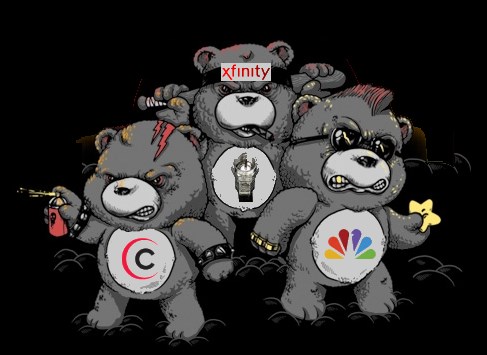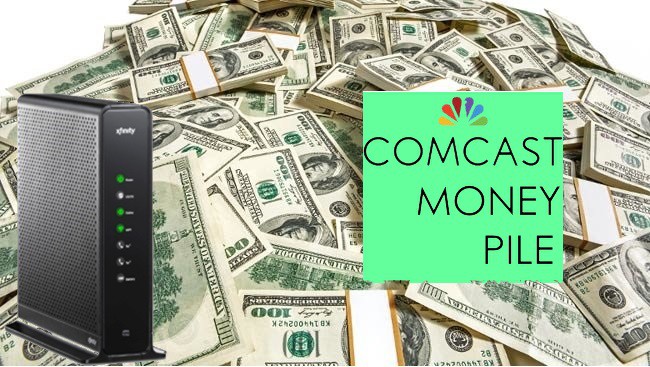 Comcast today quietly announced its broadband customers in Fort Lauderdale, the Keys and Miami, Fla., will find a broadband usage cap of 300GB per month imposed on their Internet access starting Oct. 1, 2015, along with the option of buying a new $30 insurance plan to protect against overlimit fees and restore unlimited access.
Comcast today quietly announced its broadband customers in Fort Lauderdale, the Keys and Miami, Fla., will find a broadband usage cap of 300GB per month imposed on their Internet access starting Oct. 1, 2015, along with the option of buying a new $30 insurance plan to protect against overlimit fees and restore unlimited access.
Stop the Cap! reader Jose from Hialeah informed us Comcast formally began notifying affected customers in e-mail earlier today and updated their website (thanks to DSL Reports):
***An important update about your XFINITY Internet service:
We’re writing to let you know that we will be trialing a new XFINITY Internet data plan in your area. Starting October 1, 2015, your monthly data plan will include 300GB. We’ll also trial a new “Unlimited Data” option that will give you the choice to purchase unlimited data for $30 per month in addition to your monthly Internet service fee.
The majority of XFINITY customers use less than 300GB of data in a month, and therefore will not be affected by these changes. If you are not sure of your monthly data usage, please refer to the Track and Manage Your Usage section below.
Here are the details of the plan:
You’ll get 300GB of data each month. If for any reason you exceed the 300GB included in your plan in a month, we will automatically add blocks of 50GB to your account for an additional fee of $10 each. We’re also implementing a three-month courtesy program. That means you will not be billed for the first three times you exceed the 300GB included in the monthly data plan.
Here are the details of the Unlimited Data option:
If you don’t want a 300GB data plan, the new Unlimited Data option is an alternative that provides additional choice and flexibility, especially for customers who use lots of data. You can choose to enroll in the Unlimited Data option at any time for an additional $30 a month, regardless of how much data you use. Enrollment in this option goes into effect on the first day of the subsequent calendar month.
Notifications:
If you are on the 300 GB plan, we will send you a courtesy “in-browser” notice and an email letting you know when you reach 90%, 100%, 110%, and 125% of your monthly data usage plan amount. You can also elect to receive notifications at additional thresholds as well as set up mobile text notifications. Notices will not be sent to customers who enroll in the unlimited data option.
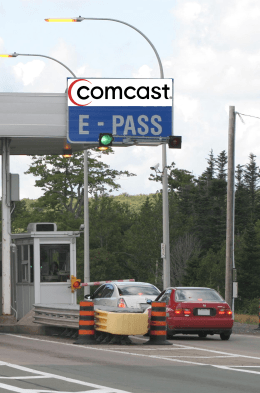
$30 a month will let Floridians bypass Comcast’s overlimit usage tolls.
What is remarkable about the introduction of Comcast’s latest usage cap trial is the naked monetization scheme that accompanies it. Comcast’s old arguments that usage caps provide an even usage experience and fairness for all customers has been replaced with a new $30 insurance plan that effectively restores the unlimited usage plan customers had until this month… for $30 more a month than they used to pay. Once Comcast collects your $30, the sky is the limit as far as usage is concerned.
Customers are howling about the changes on Comcast’s social media platforms and customer support forums. Stop the Cap! strongly urges Comcast customers to also complain to the Federal Communications Commission using this online complaint form. The more Americans that complain about capped Internet, the more likely the FCC will act on the issue.
“Comcast can just do whatever they want without asking or giving notice,” writes Jason. “So basically we all just got a $30 a month increase in our Comcast bill, such BS! I’ve been a Comcast customer over 20 years. I am done. This was the last straw.”
“Kiss my business goodbye,” wrote another customer. “I have had nothing but trouble with Comcast since I’ve had it. Weekly outages, incompetent techs on the phone, etc. AT&T U-verse may not have speeds that are as fast as Comcast, but the service was reliable, and they didn’t try to stab us in the back with ridiculous fees. Hasta la vista, Comcast!”
For now, the Unlimited Data Option is only available to customers in Florida. All other Comcast customers living under the company’s usage caps will continue to face overlimit fees of $10 for each 50GB of usage they run up past their 300GB usage allowance.
Comcast has also suddenly clarified exactly which customers are facing a life with usage caps by publishing a lengthy list of zip codes where unlucky customers will not be allowed to receive unlimited broadband. (Last week, Stop the Cap! shared with readers the story of Comcast customers in Georgia being misled about usage caps by Comcast employees. Woodstock’s two zip codes – 30188 and 30189 – appear on the below list.):
Alabama
35020, 35021, 35023, 35111, 35211, 35401, 35403, 35404, 35405, 35406, 35440, 35444, 35446, 35447, 35453, 35473, 35475, 35476, 35486, 35487, 35490, 35630, 35631, 35632, 35633, 35634, 35645, 35660, 35661, 35674, 35677, 35741, 35748, 35750, 35756, 35758, 35759, 35763, 35773, 35801, 35802, 35803, 35805, 35806, 35810, 35811, 35816, 35824, 35899, 35901, 35903, 35904, 35905, 35906, 35907, 35952, 35953, 35954, 35961, 35972, 35987, 36528, 36571, 36572, 36575, 36582, 36587, 36602, 36603, 36604, 36605, 36606, 36607, 36608, 36609, 36610, 36611, 36612, 36613, 36615, 36617, 36618, 36619, 36652, 36693, 36695
Arizona
85145, 85619, 85653, 85658, 85704, 85705, 85709, 85712, 85713, 85715, 85718, 85719, 85735, 85737, 85739, 85741, 85742, 85743, 85745, 85746, 85749, 85750, 85755, 85757
Arkansas
72301, 72303, 72331, 72364, 72373
Florida – New Area for 300GB Usage Cap; Unlimited Data Option available for $30 extra per month.
33001, 33004, 33009, 33010, 33012, 33013, 33014, 33015, 33016, 33018, 33019, 33020, 33021, 33023, 33024, 33025, 33026, 33027, 33028, 33029, 33030, 33031, 33032, 33033, 33034, 33035, 33036, 33037, 33040, 33042, 33043, 33044, 33045, 33050, 33051, 33054, 33055, 33056, 33060, 33062, 33063, 33064, 33065, 33066, 33067, 33068, 33069, 33070, 33071, 33073, 33076, 33109, 33122, 33125, 33126, 33127, 33128, 33129, 33130, 33131, 33132, 33133, 33134, 33135, 33136, 33137, 33138, 33139, 33140, 33141, 33142, 33143, 33144, 33145, 33146, 33147, 33149, 33150, 33155, 33156, 33157, 33158, 33160, 33161, 33162, 33165, 33166, 33167, 33168, 33169, 33170, 33172, 33173, 33174, 33175, 33176, 33177, 33178, 33179, 33180, 33181, 33182, 33183, 33184, 33185, 33186, 33187, 33189, 33190, 33193, 33194, 33196, 33199, 33233, 33242, 33301, 33304, 33305, 33306, 33308, 33309, 33310, 33311, 33312, 33313, 33314, 33315, 33316, 33317, 33319, 33321, 33322, 33323, 33324, 33325, 33326, 33327, 33328, 33330, 33331, 33332, 33334, 33337, 33351, 33355, 33388, 33394, 33434, 33441, 33442, 34142, 34974
Georgia
30002, 30004, 30005, 30008, 30009, 30011, 30012, 30013, 30014, 30016, 30017, 30018, 30019, 30021, 30022, 30024, 30025, 30028, 30030, 30032, 30033, 30034, 30035, 30038, 30039, 30040, 30041, 30043, 30044, 30045, 30046, 30047, 30052, 30054, 30055, 30056, 30058, 30060, 30062, 30064, 30066, 30067, 30068, 30069, 30071, 30072, 30075, 30076, 30078, 30079, 30080, 30082, 30083, 30084, 30087, 30088, 30090, 30092, 30093, 30094, 30096, 30097, 30098, 30101, 30102, 30103, 30104, 30105, 30106, 30107, 30108, 30109, 30110, 30111, 30114, 30115, 30116, 30117, 30120, 30121, 30122, 30123, 30125, 30126, 30127, 30132, 30134, 30135, 30137, 30139, 30141, 30142, 30144, 30145, 30146, 30147, 30149, 30150, 30152, 30153, 30157, 30161, 30165, 30168, 30171, 30172, 30173, 30176, 30178, 30179, 30180, 30182, 30183, 30184, 30185, 30187, 30188, 30189, 30205, 30213, 30214, 30215, 30220, 30223, 30224, 30228, 30230, 30236, 30238, 30248, 30250, 30252, 30253, 30257, 30260, 30263, 30265, 30266, 30268, 30269, 30272, 30273, 30274, 30276, 30277, 30281, 30288, 30290, 30291, 30292, 30294, 30296, 30297, 30303, 30304, 30305, 30306, 30307, 30308, 30309, 30310, 30311, 30312, 30313, 30314, 30315, 30316, 30317, 30318, 30319, 30320, 30322, 30324, 30326, 30327, 30328, 30329, 30330, 30331, 30332, 30334, 30336, 30337, 30338, 30339, 30340, 30341, 30342, 30344, 30345, 30346, 30349, 30350, 30354, 30358, 30359, 30360, 30361, 30363, 30369, 30410, 30411, 30413, 30414, 30417, 30423, 30427, 30428, 30429, 30434, 30439, 30442, 30445, 30457, 30467, 30471, 30477, 30501, 30504, 30506, 30507, 30517, 30518, 30519, 30520, 30527, 30529, 30530, 30533, 30534, 30542, 30543, 30548, 30549, 30554, 30558, 30564, 30567, 30575, 30606, 30607, 30620, 30622, 30624, 30634, 30635, 30643, 30655, 30656, 30666, 30673, 30677, 30680, 30701, 30733, 30735, 30746, 30802, 30805, 30807, 30808, 30809, 30812, 30813, 30814, 30815, 30816, 30817, 30824, 30828, 30830, 30901, 30904, 30905, 30906, 30907, 30909, 30912, 30914, 31002, 31063, 31064, 31068, 31096, 31301, 31302, 31304, 31305, 31307, 31308, 31309, 31312, 31313, 31314, 31315, 31316, 31318, 31320, 31321, 31322, 31323, 31324, 31326, 31328, 31329, 31331, 31333, 31401, 31404, 31405, 31406, 31407, 31408, 31409, 31410, 31411, 31415, 31419, 31421, 31543, 31545, 31546, 31555, 31560, 31566, 31568, 31569
Illinois
62910, 62960
Indiana
47520, 47586
Kentucky
40150, 40160, 40162, 40175, 42001, 42002, 42003, 42027, 42029, 42048, 42053, 42058, 42069, 42082, 42086, 42127, 42134, 42141, 42152, 42223, 42321, 42323, 42324, 42326, 42330, 42332, 42337, 42344, 42345, 42367, 42374, 42701, 42702, 42712, 42716, 42718, 42724, 42726, 42732, 42733, 42740, 42748, 42749, 42754, 42757, 42758, 42764, 42783, 42788
Louisiana
71201, 71202, 71203, 71209, 71225, 71227, 71229, 71234, 71238, 71280, 71291, 71292, 71294
Maine
03901, 03903, 03904, 03905, 03908, 04003, 04008, 04011, 04032, 04066, 04078, 04079, 04086, 04222, 04287, 04530, 04562, 04565, 04579
Mississippi
38611, 38618, 38619, 38621, 38632, 38635, 38637, 38641, 38649, 38651, 38654, 38661, 38664, 38666, 38668, 38670, 38671, 38672, 38674, 38676, 38680, 38683, 38801, 38802, 38803, 38804, 38824, 38826, 38828, 38829, 38834, 38835, 38843, 38846, 38849, 38855, 38856, 38857, 38860, 38862, 38866, 38868, 38869, 38876, 38879, 39041, 39042, 39043, 39046, 39047, 39056, 39066, 39071, 39073, 39079, 39110, 39145, 39151, 39154, 39157, 39167, 39170, 39174, 39175, 39193, 39201, 39202, 39203, 39204, 39206, 39208, 39209, 39210, 39211, 39212, 39213, 39216, 39217, 39218, 39232, 39269, 39272, 39301, 39302, 39303, 39304, 39305, 39307, 39309, 39320, 39325, 39335, 39338, 39342, 39347, 39348, 39355, 39364, 39366, 39367, 39401, 39402, 39406, 39422, 39437, 39439, 39440, 39441, 39442, 39443, 39455, 39465, 39475, 39477, 39481, 39773
South Carolina
29108, 29127, 29401, 29403, 29404, 29405, 29406, 29407, 29408, 29409, 29410, 29412, 29414, 29418, 29420, 29424, 29425, 29426, 29429, 29438, 29439, 29445, 29449, 29451, 29455, 29456, 29461, 29464, 29466, 29470, 29482, 29483, 29485, 29487, 29488, 29492, 29628, 29803, 29822, 29829, 29831, 29841, 29842, 29847, 29860, 29901, 29902, 29904, 29906, 29907, 29911, 29920, 29924, 29944, 29945
Tennessee
37010, 37013, 37014, 37015, 37020, 37022, 37025, 37026, 37027, 37029, 37030, 37031, 37032, 37033, 37036, 37037, 37042, 37046, 37048, 37049, 37051, 37055, 37059, 37060, 37062, 37064, 37066, 37067, 37069, 37071, 37072, 37073, 37074, 37075, 37076, 37080, 37082, 37083, 37085, 37086, 37087, 37090, 37098, 37115, 37119, 37122, 37127, 37128, 37129, 37130, 37131, 37132, 37135, 37137, 37138, 37141, 37143, 37145, 37148, 37149, 37150, 37152, 37153, 37165, 37166, 37167, 37172, 37179, 37181, 37185, 37186, 37187, 37188, 37189, 37190, 37201, 37203, 37204, 37205, 37206, 37207, 37208, 37209, 37210, 37211, 37212, 37213, 37214, 37215, 37216, 37217, 37218, 37219, 37220, 37221, 37228, 37229, 37232, 37235, 37236, 37238, 37240, 37243, 37246, 37306, 37318, 37324, 37330, 37352, 37366, 37398, 37701, 37705, 37709, 37710, 37713, 37714, 37716, 37719, 37721, 37722, 37725, 37726, 37737, 37738, 37742, 37748, 37754, 37755, 37756, 37757, 37763, 37764, 37766, 37769, 37770, 37771, 37772, 37777, 37779, 37801, 37803, 37804, 37806, 37807, 37820, 37821, 37828, 37829, 37830, 37840, 37841, 37843, 37845, 37847, 37849, 37852, 37853, 37854, 37862, 37863, 37871, 37872, 37876, 37882, 37886, 37887, 37892, 37902, 37909, 37912, 37914, 37915, 37916, 37917, 37918, 37919, 37920, 37921, 37922, 37923, 37924, 37929, 37931, 37932, 37934, 37938, 37996, 37998, 38002, 38010, 38011, 38014, 38015, 38016, 38017, 38018, 38019, 38028, 38029, 38036, 38039, 38046, 38048, 38049, 38052, 38057, 38060, 38061, 38066, 38067, 38068, 38069, 38075, 38076, 38103, 38104, 38105, 38106, 38107, 38108, 38109, 38111, 38112, 38113, 38114, 38115, 38116, 38117, 38118, 38119, 38120, 38122, 38125, 38126, 38127, 38128, 38131, 38132, 38133, 38134, 38135, 38137, 38138, 38139, 38141, 38152, 38157, 38305, 38326, 38339, 38357, 38365, 38367, 38375, 38504, 38547, 38549, 38553, 38555, 38556, 38557, 38558, 38560, 38565, 38570, 38571, 38572, 38577, 38583


 Subscribe
Subscribe Before regulators, the media, and elected officials, Comcast’s executive vice president David Cohen has repeatedly told all who can hear that there are no usage caps on Comcast’s broadband service.
Before regulators, the media, and elected officials, Comcast’s executive vice president David Cohen has repeatedly told all who can hear that there are no usage caps on Comcast’s broadband service.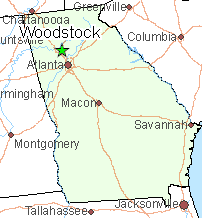 Joe isn’t the only one being misinformed by Comcast.
Joe isn’t the only one being misinformed by Comcast. Eric Ravenscraft suspects Comcast isn’t too happy with complaints it is getting about data caps from its customers either. He recently received a call from Comcast seeking feedback on what customers would like to see changed about the caps. But in typical Comcast fashion, getting rid of the caps does not seem to be an option. Instead, the representative claimed “obviously, the plans are outdated,” which suggests Comcast will adjust your allowance, not get rid of it.
Eric Ravenscraft suspects Comcast isn’t too happy with complaints it is getting about data caps from its customers either. He recently received a call from Comcast seeking feedback on what customers would like to see changed about the caps. But in typical Comcast fashion, getting rid of the caps does not seem to be an option. Instead, the representative claimed “obviously, the plans are outdated,” which suggests Comcast will adjust your allowance, not get rid of it.


 Cox plans to limit its gigabit customers to 2TB of usage a month. AT&T U-verse with GigaPower has a (currently unenforced) limit of 1TB a month, while Suddenlink thinks 550GB is more than enough for its gigabit customers. Comcast is market testing 300GB usage caps in several cities but strangely has no usage cap on its usage-gobbling gigabit plan. Why cap the customers least-equipped to run up usage into the ionosphere while giving gigabit customers a free pass? It doesn’t make much sense.
Cox plans to limit its gigabit customers to 2TB of usage a month. AT&T U-verse with GigaPower has a (currently unenforced) limit of 1TB a month, while Suddenlink thinks 550GB is more than enough for its gigabit customers. Comcast is market testing 300GB usage caps in several cities but strangely has no usage cap on its usage-gobbling gigabit plan. Why cap the customers least-equipped to run up usage into the ionosphere while giving gigabit customers a free pass? It doesn’t make much sense.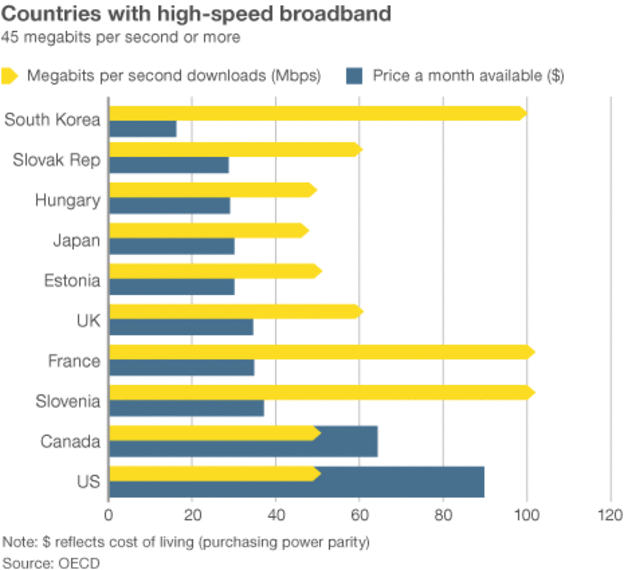
 The abuses were so bad, Congress finally stepped in and authorized regulators to break up the railroad monopolies and regulate abusive pricing. We may be headed in the same direction with broadband. We do not advocate regulation for the sake of regulation. Competition is a much more efficient way to check abusive business practices. But where an effective monopoly or duopoly exists, competition alone will not help. Without consumer-conscious oversight, the forthcoming gigabit broadband revolution will be stalled by speed bumps and toll booths for the benefit of a few giant telecommunications corporations. That will allow other countries to once again leap ahead of the United States and Canada, just as they have done with Internet speeds, delivering superior service at a lower price.
The abuses were so bad, Congress finally stepped in and authorized regulators to break up the railroad monopolies and regulate abusive pricing. We may be headed in the same direction with broadband. We do not advocate regulation for the sake of regulation. Competition is a much more efficient way to check abusive business practices. But where an effective monopoly or duopoly exists, competition alone will not help. Without consumer-conscious oversight, the forthcoming gigabit broadband revolution will be stalled by speed bumps and toll booths for the benefit of a few giant telecommunications corporations. That will allow other countries to once again leap ahead of the United States and Canada, just as they have done with Internet speeds, delivering superior service at a lower price. Comcast plans to upgrade its cable broadband facilities nationwide to support gigabit broadband using DOCSIS 3.1 technology within two years, according to a company official.
Comcast plans to upgrade its cable broadband facilities nationwide to support gigabit broadband using DOCSIS 3.1 technology within two years, according to a company official.